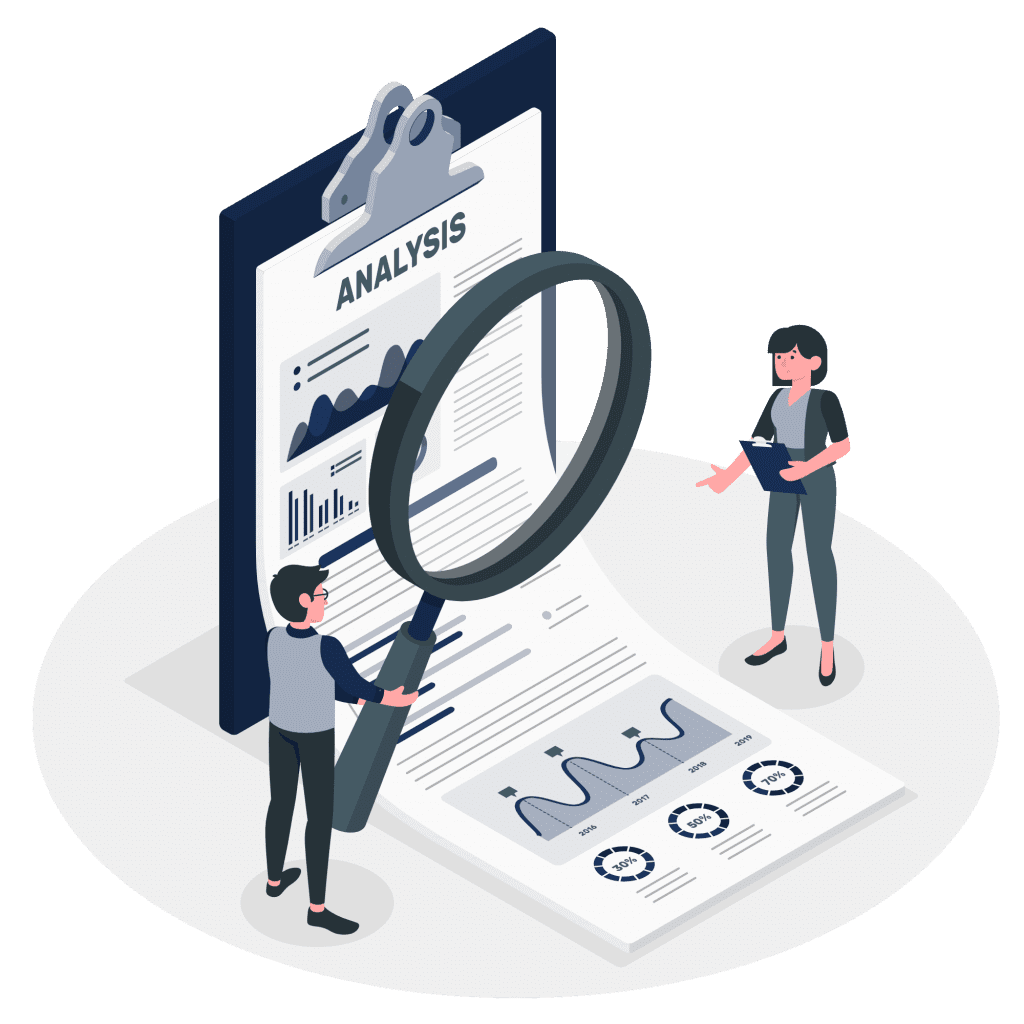Top 5 things to do after an Education Fair

Experiencing exhaustion from the education fair’s commotion? However, the hustle is not over yet.
You must have worked hard to make a strong presence at the fair but the real hustle starts after the event. Attending the event and displaying your university’s gorgeous booth are not your only goals. Instead, investing in and attending an event should ensure you build strong relationships with your potential students and keep your university/school top of mind as students make their admission decisions.
In order to make sure that the fair is successful and leaves a lasting impression on your leads, post-event engagement is a crucial step in the event planning process. You can establish yourself as the ideal university among potential students only with a well-planned post-event engagement strategy. And we are precisely here to assist you with this.
This piece consists of the top 5 ready-to-implement post-event practices that can help you achieve your desired results.
Manage the Lead Influx

You must have met multiple prospective students at the event, including your leads, sponsors, and some powerful people in the education industry. Managing their information right will help you increase enrollments, foster partnerships, and allocate resources effectively.
There are multiple ways to manage your lead influx:
- Set up a system for tracking leads: You should set up a system for tracking leads, such as a spreadsheet or a database, to ensure that all leads are captured and organized.
- Assign lead management tasks: You can assign tasks related to lead management to specific staff members or teams to ensure that leads are promptly followed up on.
- Qualify leads for prioritisation: Qualification of leads can be done by gathering more information about their interests and needs. This can help you determine which leads are most likely to convert into students and prioritize follow-up efforts accordingly.
All these ways seem a little overwhelming when performed manually. How about cutting your manual effort via automation? This can be done with the aid of an effective education CRM, where you can enter all of your leads onto a single platform.
Leads can be managed via CRM in two major ways:
- Quick Add: This feature allows you to quickly add a lead to the CRM using a lead form that includes multiple customisable fields such as lead name, lead status, lead source, mobile number, email ID, and more. You can use this in the event itself, where every time a student comes to your booth, you can add his or her information there and then.
- Bulk upload: The bulk upload feature allows you to directly upload an excel sheet into the CRM, which means you do not need to manually add each lead. Also, the inbuilt duplicacy checker will remove all the duplicate leads and ensure zero lead leakage.
Lead Allocation and Status Tracking
![]()
After gathering all of your leads and their associated data, you must distribute the leads to your counselors. Assigning the leads to the counselors builds credibility and ensures that every lead has been worked on.
You can either assign the leads in an evergreen way:
Adding a column to your excel sheet with a drop-down menu of counselor names and manually assigning each lead. Post-allocation, each counselor will be working on their individual leads by sending various communications. Additionally, each counselor will manually monitor and update the lead’s status.
Or you can assign leads smartly while using the rule engine automation provided within the education-specific CRM to automate lead allocation and auto-update the lead status.
Auto lead allocation can be done by setting criteria. A few of them are provided below:
- Even distribution of leads among counselors in a predetermined order. This ensures that each counselor has an equal opportunity to follow up on leads.
- Lead assignment can be done based on the location of the lead to ensure that leads are assigned to the relevant counselor.
- Leads are assigned to counselors on a scoring system that takes into account factors such as the lead’s location and level of interest. It ensures that the most qualified leads are assigned to the most experienced counselor.
- Lastly, leads are assigned to the first available counselor to ensure that leads are followed up on as quickly as possible.
Aggressive Follow-up
 An effective first step towards a higher ROI is to get in touch with your leads before your competitors do. There are a variety of methods to follow up on leads, including
An effective first step towards a higher ROI is to get in touch with your leads before your competitors do. There are a variety of methods to follow up on leads, including
- Email: You may send emails to leads to provide information about the programs, scholarships, and application process. Also, include a call-to-action to encourage the leads to visit the university’s website or schedule a visit.
- Phone calls: phone calls are the best way to provide more personalized information about your programs and answer any questions the lead may have.
- Social media: You can use social media platforms to engage with leads and provide the latest updates about your programs, events, and other news.
To turn leads into students, you must promptly and consistently follow up with them. Talking of consistency and promptness reminds us of CRM. A powerful CRM can help you cultivate leads quickly and guarantee prompt follow-ups.
A CRM provides the following communication channels:
- Inbuilt ‘Click-to-Call’ to reduce response time and avoid errors
- Inbuilt 2-way Whatsapp and Whatsapp Bot for quick and personalised communications
- In-built video call app to provide prospects with a personalized experience
- Bulk SMS, Email automation to run triggered-based campaigns and drip campaigns
Apart from increasing your conversion ratio, timely follow-up can help you better understand the impact and value of the event, gather valuable feedback and insights, and build relationships with potential partners and sponsors to explore opportunities for collaboration.
ROI Calculation

The return on investment (ROI) can be used to determine if spending money to attend an educational event was a wise choice. Here are some steps you can follow to calculate the ROI of an education event:
- Determine the cost of the fair: Calculate the total cost of the event, including any fees for registration, travel, accommodations, and other expenses.
- Identify the benefits of the fair: Consider the benefits that the university received from participating in the event, such as increased awareness and exposure, new leads and inquiries, and increased enrollment.
- Assign a value to the benefits: Determine the value of the benefits that the university received from the event. This can be difficult to do accurately, but you can use a variety of methods, such as assigning a fixed value to each lead or estimating the value of increased exposure or enrollment.
- Calculate the ROI: Once you have all the numbers in place, do an in-depth analysis to see where you stand in terms of return from a particular fair.
Measuring the ROI of the fair is vital, as it enables you to ascertain the fair’s financial and non-financial value and decide if the investment was worthwhile. It also helps in evaluating which activities were most effective in assisting you in reaching your goals and allocating resources accordingly.
Overall Event Evaluation

Event evaluation is crucial because it enables you to assess the success of the event you attended and identify potential improvement areas. Event evaluation also enables you to identify your best practices and winning strategies for upcoming occasions.
There are numerous ways to evaluate; a few significant ones are highlighted below:
- Surveys: Surveys are a great way to gather feedback from attendees, organizers, and staff about the event. It can be used to assess the overall satisfaction with the event, identify areas for improvement, and gather suggestions for future fairs.
- Interviews: You can conduct interviews with attendees, organizers, and staff to gather more in-depth feedback about the event. Interviews can be conducted in person or over the phone and can provide valuable insights and perspectives on the fair.
- Focus groups: Focus groups can be used to gather feedback about the event from a small, representative group of attendees. Focus groups can be useful for gathering more in-depth feedback and identifying trends or patterns in the responses.
- Analysing metrics: You can analyse metrics through a few significant reports that talk about the number of total leads, registrations and lead status to assess the success of the event. These metrics help you determine the reach and impact of the event and identify areas for improvement.
- Reviewing feedback and suggestions: By reviewing feedback or suggestions provided by attendees, organizers, and staff you can improve your presence at future fairs.
Final Thoughts
You now know all the major tasks that need to be taken care of after the event. Since managing and allocating the influx of leads will have an immediate impact on your conversion cycle, it should be your top priority task. Consistent follow-ups after lead allocation will unquestionably help you increase your conversion rate.
Your conversion cycle may not be directly impacted by the ROI calculation and overall event evaluation, but they unquestionably have a significant impact on future event planning. As you can identify your best practices and potential improvement areas with the help of past event evaluations. Also, taking into consideration the challenges and lessons of your past experiences will help you set a clear goal and objective for your future endeavours.


